1. Developing traditional medicine – A key task in the new period
- 1. Developing traditional medicine – A key task in the new period
- 2. Current situation and difficulties
- 3. The need for specific mechanisms and policies
- 4. Proposing key mechanisms and policies
- 5. Towards modern, integrated and sustainable traditional medicine
On September 15, 2025, the Prime Minister issued Directive No. 25/CT-TTg on "Promoting the development of Vietnamese traditional medicine in the new period". The document affirmed: "Developing traditional medicine is an important task to inherit and promote the quintessence of national knowledge, combining modern medicine to protect, care for and improve people's health".
One of the key contents of the Directive is to promote the collection, inheritance, preservation and development of good remedies, precious medicinal plants and effective treatment methods - this task is assigned directly to the Vietnam Oriental Medicine Association .
To effectively implement this Directive, there needs to be specific, feasible and sustainable mechanisms and policies to promote the role of the Oriental Medicine Association in preserving and developing the nation's treasure of traditional medical knowledge - a valuable heritage of the country.
2. Current situation and difficulties
Over the years, the Vietnam Oriental Medicine Association has made efforts to implement programs to collect, preserve and develop traditional medical knowledge nationwide. Tens of thousands of folk remedies and family remedies have been collected and preserved in 63 provinces and cities. Dozens of gardens to preserve precious medicinal plants have been built. Many traditional medicine clinics and models combining Eastern and Western medicine have operated effectively, contributing positively to people's health care.

Many folk remedies and family remedies are collected and preserved in 63 provinces and cities...
However, practice shows that this work still has many shortcomings and challenges:
- Lack of a unified legal mechanism for the protection of folk knowledge and the process of recognizing traditional medicine. Currently, there are no clear regulations on the ownership and rights of the medicine holder, leading to the situation where much valuable knowledge is lost or exploited spontaneously.
- Limited financial resources, most of the Association's activities rely on voluntary contributions from members.
- There is no fund for preserving traditional medicine knowledge, causing difficulties in implementing research topics, testing, digitizing data or storing prescriptions.
- Scarce successor human resources: Many elderly physicians do not have an official successor; training and succession work does not have a clear incentive mechanism.
- Lack of inter-sectoral coordination mechanism between the Oriental Medicine Association, the Ministry of Health , institutes, schools and localities. Many activities are still fragmented and lack a unified focal point.
If these difficulties are not resolved by specific policies, they will cause the source of traditional medical knowledge to be lost, and at the same time slow down the modernization and integration process of traditional medicine.
3. The need for specific mechanisms and policies
Traditional medicine is not only a specialized field but also closely linked to culture, beliefs, folk knowledge and vocational training – intangible factors that are difficult to quantify by conventional management mechanisms. Therefore, without specific policies, many valuable values may be lost or misused.
The issuance of a separate mechanism for this field is of particular importance:
- Legalize and protect folk medical knowledge, prevent copying and appropriation of traditional knowledge.
- Create a legal corridor for the Oriental Medicine Association to participate deeply in research, appraisal and licensing of traditional medicine.
- Ensure financial and human resources so that the Association can carry out projects to collect, preserve and develop traditional medicine systematically and sustainably.
- Encourage socialization, attract businesses, research institutes, universities, and ethnic communities to participate in preserving and developing valuable medicinal resources and remedies.
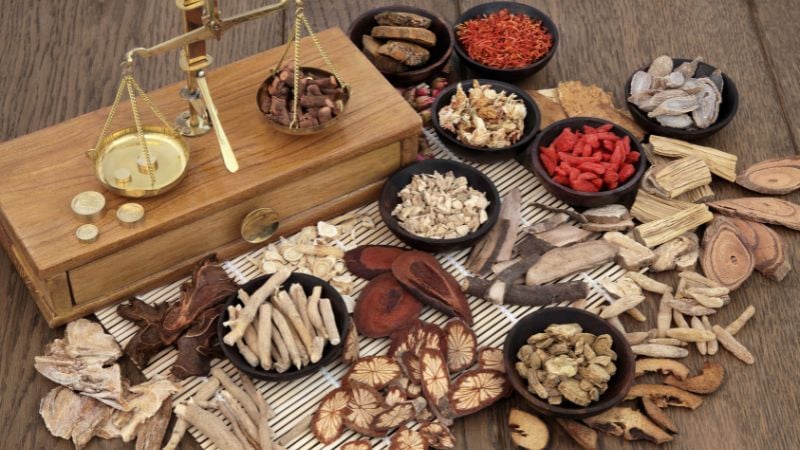
Promote the collection, inheritance, preservation and development of good remedies and precious medicinal plants of traditional medicine.
4. Proposing key mechanisms and policies
4.1. Perfecting the legal mechanism and specialized management
The Ministry of Health needs to issue a separate Circular providing guidance on the collection, inheritance, preservation and development of traditional medicine knowledge, including:
- Clearly define the responsibilities and powers of the Vietnam Association of Oriental Medicine in verifying, appraising and recording folk remedies and methods.
- Develop a process to recognize "traditional knowledge keepers", issue identification codes to traditional physicians and folk healers; and at the same time, regulate benefits, allowances, and benefit sharing when they transfer or publish medicinal recipes.
- Issue a "benefit-sharing" mechanism between the community, individuals holding knowledge and businesses when the medicine is applied in production and commercialization.
This mechanism not only protects the rights of knowledge holders but also encourages transparency and legalization of the origin of medicinal products, creating a foundation for research and sustainable development.
4.2. Financial and investment mechanisms
It is necessary to soon establish a National Fund for preserving traditional medicine knowledge, managed by the Ministry of Health, with the Vietnam Oriental Medicine Association as the permanent implementing agency.
Funds are concentrated for:
- Investigate, collect, verify, digitize medicinal prescriptions and precious medicinal plants.
- Clinical research, standardization of effective folk remedies.
- Support medicinal herb growing areas, conservation centers and traditional medicine practice facilities.
Besides the State budget, it is necessary to encourage socialized investment, allowing enterprises, cooperatives, and non-governmental organizations to participate.
Projects to conserve precious medicinal plants, develop medicinal herbs and traditional medicine products should enjoy tax, land and credit incentives, similar to the high-tech agricultural sector.
4.3. Application of science and technology in knowledge preservation
An important step is to build a National Herbal Database of Vietnamese medicinal herbs and prescriptions – connecting the Oriental Medicine Association, the Institute of Medicinal Materials, medical schools and businesses.
This system can apply digital technology and artificial intelligence (AI) to:
- Classification, identification, traceability of medicinal plants and prescriptions.
- Data security, preventing loss or illegal copying of folk knowledge.
- Support the standardization, qualitative and quantitative identification of active ingredients, contributing to the modernization of the research and production process of traditional medicine.
At the same time, it is necessary to support clinical research, pilot production and technology transfer for medicines with high practical effectiveness.
4.4. Mechanism for conservation and development of precious medicinal plants
The construction of a national medicinal plant map is an urgent requirement to identify endemic and endangered medicinal plant areas.
On that basis, support:
- Build 3-5 regional conservation gardens and many provincial gardens, prioritizing indigenous medicinal plants of high economic and medical value.
- Apply policies on land rent exemption and reduction, support for seeds and planting techniques according to GACP-WHO standards.
- Combining conservation with the development of eco-medicinal tourism, creating sustainable livelihoods for highland people, while promoting the value of Vietnamese medicinal plants to the world.

Inheritance and human resource development: training and passing on the profession between senior physicians and students of traditional medicine.
4.5. Mechanism for training, succession and human resource development
Human resources are the key factor to preserve traditional knowledge. It is necessary to implement the "Successor of Traditional Medicine" program - training and controlled transfer of skills between senior traditional medicine practitioners and students of traditional medicine.
Some specific suggestions:
- Support scholarships and allowances for students who commit to practicing in difficult areas.
- Recognize "traditional knowledge keepers" as eligible for research support or regular allowances.
- Cooperate with medical schools to incorporate the collection and preservation of traditional medicine into the official curriculum, and encourage research and clinical practice combining Eastern and Western medicine.
4.6. Strengthening community coordination and communication
To put the mechanisms and policies into practice, it is necessary to establish an inter-sectoral coordination mechanism between the Ministry of Health, the Ministry of Science and Technology, the Ministry of Agriculture and Rural Development, the Ministry of Culture, Sports and Tourism, the Vietnam Association of Traditional Medicine and localities.
Propose to organize the annual Vietnam Traditional Medicine Week, aiming to:
- Honoring good medicine, precious medicinal plants, and typical physicians;
- Promote scientific communication, raise public awareness of the value of traditional medicine;
- Prevent superstition and abuse of unverified drugs, affirm the image of traditional medicine as standardized, scientific, and integrated.
5. Towards modern, integrated and sustainable traditional medicine
Traditional medicine is the quintessence of the nation, the "treasure" of Vietnamese medicine. In order for Prime Minister's Directive 25/CT-TTg to truly come into life, it is necessary to soon complete a synchronous, specific and effective mechanism and policy, helping the Vietnam Oriental Medicine Association to promote its core role in collecting, inheriting, preserving and developing good remedies, precious medicinal plants and effective treatment methods.
When traditional knowledge is preserved and harmoniously combined with modern science, Vietnam can completely build a modern, integrated, and sustainable traditional medicine, contributing to enhancing the position of Vietnamese medicine in the region and in the world.
Please watch more videos:
Source: https://suckhoedoisong.vn/hoan-thien-hanh-lang-phap-ly-trong-bao-ton-va-phat-trien-tri-thuc-y-hoc-dan-toc-169251103140649485.htm


![[Photo] Ho Chi Minh City Youth Take Action for a Cleaner Environment](https://vphoto.vietnam.vn/thumb/1200x675/vietnam/resource/IMAGE/2025/11/04/1762233574890_550816358-1108586934787014-6430522970717297480-n-1-jpg.webp)

![[Photo] Panorama of the Patriotic Emulation Congress of Nhan Dan Newspaper for the period 2025-2030](https://vphoto.vietnam.vn/thumb/1200x675/vietnam/resource/IMAGE/2025/11/04/1762252775462_ndo_br_dhthiduayeuncbaond-6125-jpg.webp)

![[Photo] The road connecting Dong Nai with Ho Chi Minh City is still unfinished after 5 years of construction.](https://vphoto.vietnam.vn/thumb/1200x675/vietnam/resource/IMAGE/2025/11/04/1762241675985_ndo_br_dji-20251104104418-0635-d-resize-1295-jpg.webp)
![[Photo] Ca Mau "struggling" to cope with the highest tide of the year, forecast to exceed alert level 3](https://vphoto.vietnam.vn/thumb/1200x675/vietnam/resource/IMAGE/2025/11/04/1762235371445_ndo_br_trieu-cuong-2-6486-jpg.webp)

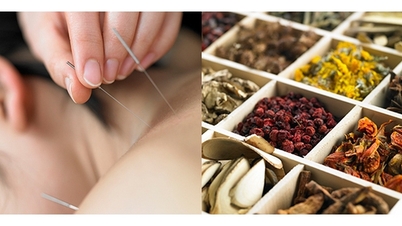
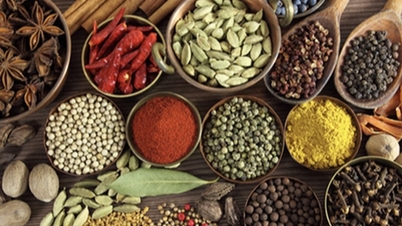
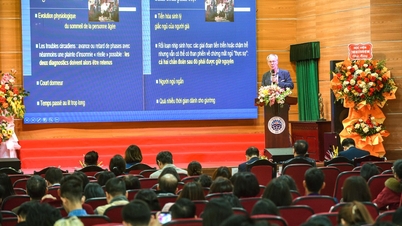


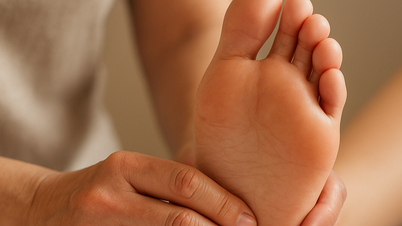







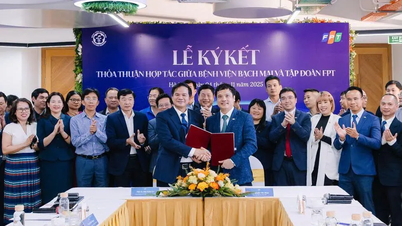








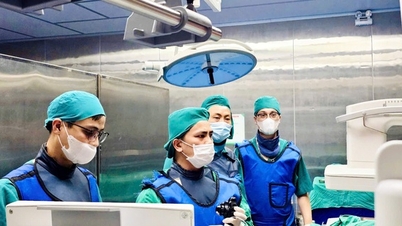

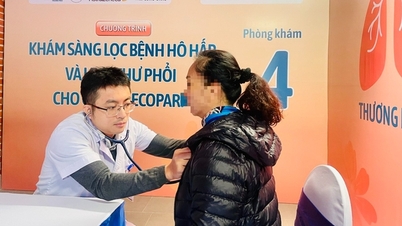





















































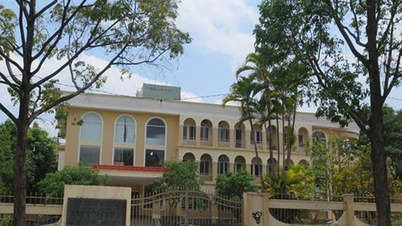

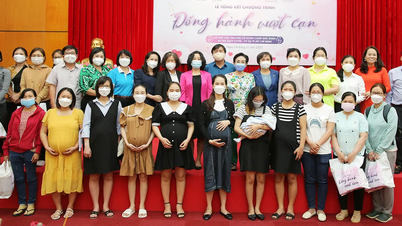


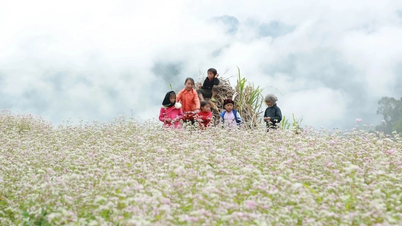














Comment (0)